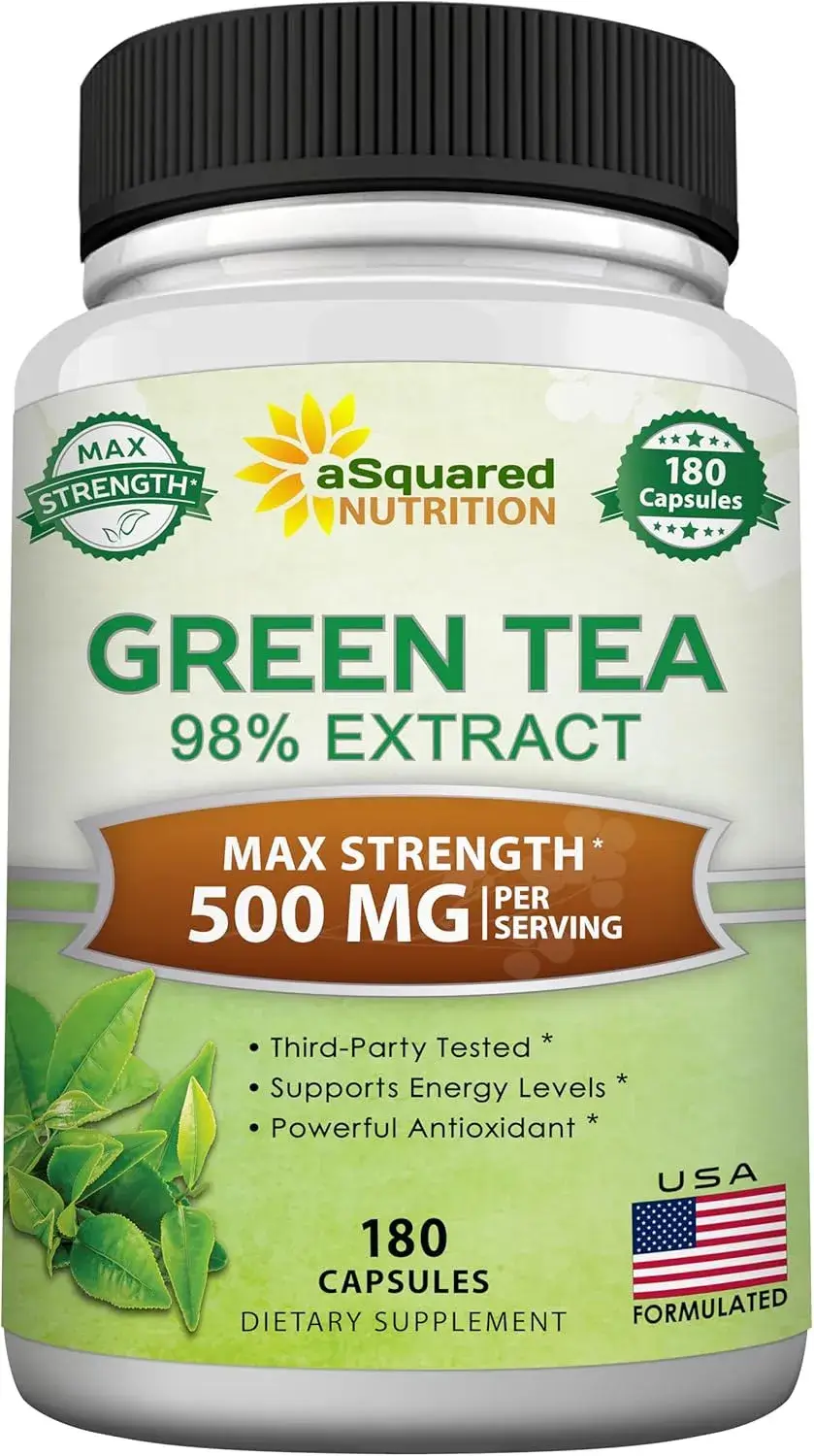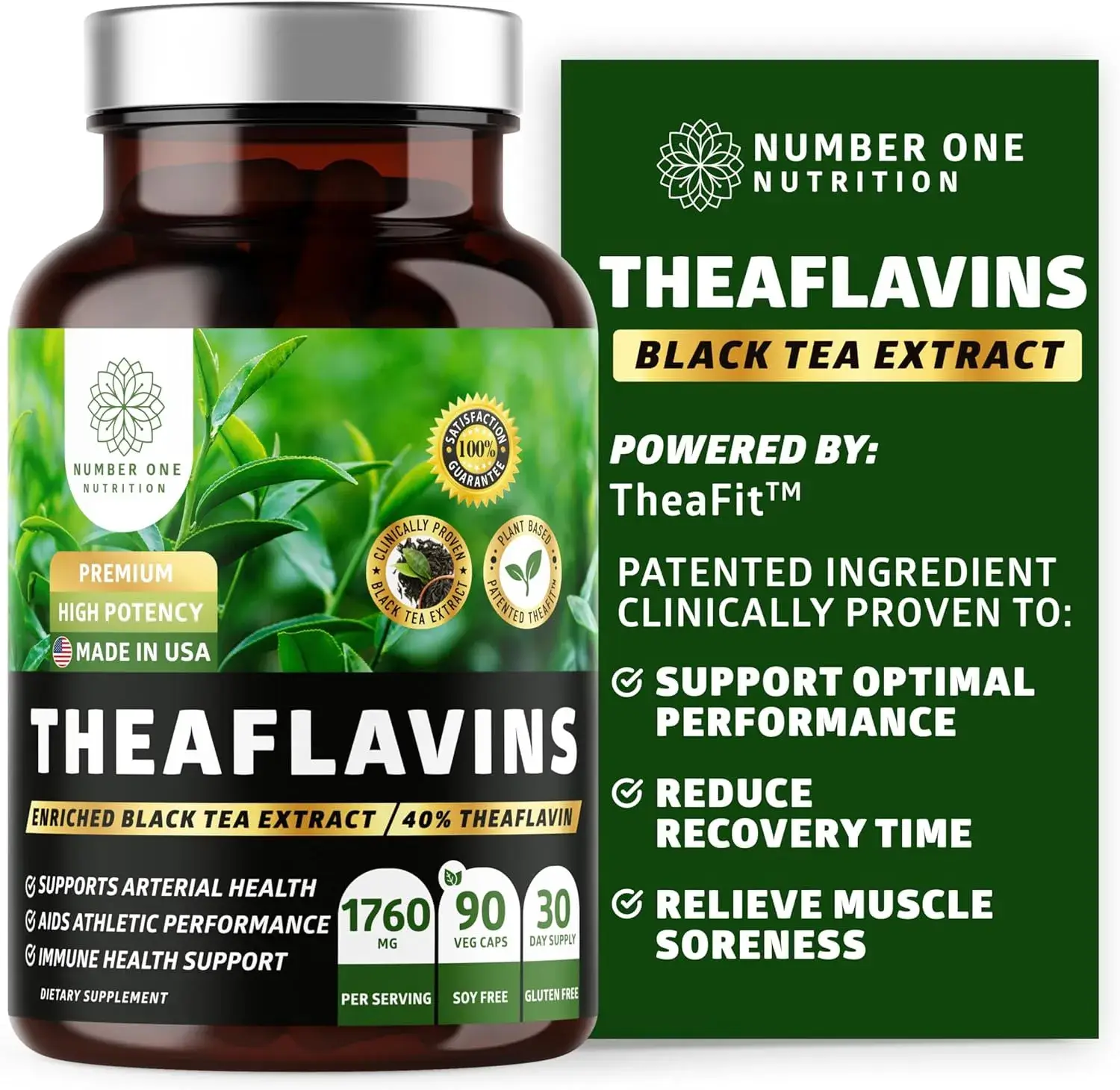Table of Contents
Mint tea is good for what exactly? Well, I’ve discovered this aromatic brew goes far beyond just a pleasant after-dinner drink. Historically used by Native Americans to ease upset stomachs and ancient Greeks and Egyptians as medicine, mint tea has stood the test of time for good reason.
Additionally, this soothing beverage offers numerous mint tea benefits backed by science. According to research, it helps improve digestion and can relieve irritable bowel symptoms. I’ve also found that peppermint tea before bed promotes relaxation, while some studies suggest peppermint tea weight loss benefits may be real—a 2007 study showed people who inhaled peppermint throughout the day consumed fewer calories and reported feeling less hungry. Furthermore, the active ingredient in peppermint, menthol, acts as a decongestant to help open airways and loosen mucus.
Despite these impressive benefits, it’s worth noting that menthol in large amounts can cause adverse side effects. Throughout this article, we’ll explore seven science-backed benefits of mint tea and examine exactly what this versatile beverage can do for your health.
Improves Digestive Health

The digestive system benefits most prominently from mint tea consumption. Many people reach for a cup after meals, and there’s good science behind this habit. Let me explain exactly how mint tea can work wonders for your digestive health.
Digestive benefits of mint tea
Mint tea primarily helps by relaxing the muscles in your digestive tract, creating a soothing effect throughout your gastrointestinal system. The calming properties of peppermint can ease various digestive discomforts, including:
- Gas and bloating relief: Peppermint helps relax stomach muscles and improves bile flow, which assists with symptoms of indigestion.
- Reduced abdominal pain: The muscle-relaxing effects can minimize cramping and discomfort.
- Faster food passage: Mint tea causes the stomach muscles to relax, improving the flow of bile and helping food digest more quickly through the stomach.
For those struggling with Irritable Bowel Syndrome (IBS), mint tea may offer substantial relief. Many IBS patients experience pain, bloating, diarrhea, and gas—all symptoms that peppermint has been shown to help soothe. However, it’s worth noting that mint tea isn’t beneficial for everyone. Those with gastroesophageal reflux disease (GERD) should avoid peppermint as it may worsen symptoms by relaxing the esophageal muscles.
Scientific evidence for digestion support
The scientific backing for mint tea’s digestive benefits is substantial, especially when looking at its active component—menthol. Most research has focused on peppermint oil rather than the tea itself, but the mechanisms suggest similar benefits.
In a comprehensive review of nine studies involving 726 people with IBS, researchers found that peppermint provided significantly better symptom relief than a placebo after just two weeks of treatment. Moreover, one specific study with 72 IBS patients showed peppermint oil capsules reduced symptoms by 40% after four weeks, compared to only 24.3% with a placebo.
For children, the evidence is equally compelling. A review of 14 clinical trials with nearly 2,000 children demonstrated that peppermint reduced the frequency, length, and severity of abdominal pain.
The science behind these benefits reveals multiple mechanisms:
- Smooth muscle relaxation via calcium channel blockade or direct effects on the enteric nervous system
- Modulation of visceral sensitivity
- Anti-microbial effects
- Anti-inflammatory activity
Scientists have observed that peppermint affects various parts of the digestive system, including the esophagus, stomach, small bowel, gallbladder, and colon. Specifically, peppermint oil has been found to decrease small bowel contractility and slow orocecal transit.
How to use mint tea for digestion
Preparing mint tea for digestive benefits is straightforward. Here’s how I make it:
- Boil two cups of water
- Remove from heat and add a handful of torn or chopped mint leaves
- Cover and steep for five minutes
- Strain and enjoy
For maximum digestive benefits, drink mint tea after meals when you’re experiencing discomfort. Kathleen Zelman, a registered dietitian nutritionist, notes that mint tea has “been shown to help with digestion and some irritable bowel symptoms”.
As an alternative, some experts suggest two to three drops of good quality peppermint oil in water taken after meals can help with digestion and decrease gas and belching. Nevertheless, the tea form is generally more pleasant and easier to incorporate into your daily routine.
Remember that mint tea is naturally caffeine-free, making it suitable for evening consumption without disrupting sleep. However, if you have GERD, acid reflux, or chronic gallbladder issues, mint tea might worsen your symptoms and should be avoided. Likewise, peppermint can interact with certain medications, so checking with your doctor before regular use is advisable.
👉 Upgrade Your Wellness With Superior, Certified Organic Mint Tea 👈
Relieves Cold and Sinus Symptoms

When cold and flu season arrives, mint tea becomes my go-to remedy for respiratory relief. This soothing beverage does much more than just warm the throat—it actively combats congestion and eases breathing difficulties through several mechanisms.
How mint tea helps with colds
Mint tea works against cold symptoms in multiple ways, making it a powerful natural remedy. First, peppermint contains antibacterial, antiviral, and anti-inflammatory compounds that help fight the underlying causes of colds. These properties may potentially prevent illness from developing in the first place, as peppermint is thought to possess antiviral qualities that can help ward off infections.
Beyond fighting the infection itself, mint tea provides symptomatic relief. The warm liquid soothes irritated throats and helps with congestion—a doctor’s first recommendation during illness is often to increase fluid intake. Mint tea specifically delivers antimicrobial and antiviral entities recognized even by the USDA for their effectiveness.
For those suffering from a cold, peppermint tea offers similar benefits to a cough drop while simultaneously addressing congestion. Additionally, mint tea can reduce inflammation, body aches, and pain that frequently accompany cold and flu symptoms. This makes it an excellent all-in-one remedy during illness.
Menthol and decongestant properties
Menthol—the active compound in peppermint—serves as the primary reason behind mint tea’s effectiveness against respiratory congestion. As a natural decongestant, menthol helps unclog the nose and relieve nasal running by shrinking swollen membranes in the nasal passages. This makes breathing noticeably easier when you’re congested.
Interestingly, menthol has been used in traditional Asian medicine for respiratory ailments for hundreds of years, though it wasn’t introduced to Western medicine until the late 19th century. With recent discoveries about menthol receptors on sensory nerves that modulate cooling sensations, this compound has moved from herbal medicine into molecular pharmacology.
Even without physically clearing congestion, menthol improves the perception of airflow in the nasal cavity. This means that while drinking mint tea, you might feel like you’re breathing more easily because the menthol creates a cooling sensation that tricks your brain into perceiving clearer airways. The compound also works to loosen mucus collected in the lungs, further enhancing respiratory function.
Best time to drink for cold relief
For maximum benefit during a cold, timing matters when consuming mint tea. Since congestion often worsens at night, drinking a cup before bed can help ease nighttime breathing difficulties. Throughout the day, aim for 3-4 cups of freshly prepared mint tea to maintain consistent symptom relief.
To prepare an effective decongestant tea:
- Boil 150 ml of water
- Add 6 chopped peppermint leaves
- Let steep for 5-7 minutes
- Strain and sweeten with honey if desired
For enhanced decongestant effects, try these alternative methods:
- Inhale the steam rising from your freshly brewed cup of mint tea
- Add a few diluted drops of peppermint oil to a tissue and gently breathe in
- Create a steam treatment by adding a few drops of peppermint oil to boiling water and inhaling with a towel draped over your head
Mint tea proves particularly beneficial for those suffering from sinusitis or allergic rhinitis. A 2022 study found that peppermint essential oils improved sneezing, rubbing, and other allergic behaviors while reducing upper airway inflammation. Consequently, the tea can provide relief not just for cold-related congestion but also for allergy-induced respiratory symptoms.
Remember that mint tea offers more than just symptom relief—it simultaneously delivers antioxidants and antimicrobial compounds that support your immune system while you recover.
Reduces Stress and Promotes Relaxation

Beyond physical health benefits, mint tea offers remarkable mental wellness advantages. In fact, this soothing beverage may be the antidote to our often hectic daily routines, helping calm both mind and body naturally.
Mint tea as a natural relaxant
The soothing properties of mint tea stem primarily from menthol, its active compound that acts as a natural muscle relaxant. This relaxing effect extends beyond just physical tension—it works on multiple levels to promote overall calmness. Menthol helps release muscle tension throughout the body, creating a gentle unwinding sensation that can be felt shortly after consumption.
I’ve found that mint tea’s naturally caffeine-free composition makes it particularly effective as a relaxant. Unlike many other teas that contain stimulants, mint tea won’t counteract its calming effects with unwanted energy boosts. The cooling sensation produced by menthol provides a distinctly refreshing experience that many find mentally soothing.
The aroma of mint itself plays a significant role in its relaxation benefits. Research indicates that simply inhaling the scent of peppermint can increase alertness while simultaneously reducing anxiety. This dual action makes mint tea uniquely effective—it doesn’t simply sedate but instead promotes a state of calm alertness.
Scientific support for stress reduction
Several scientific studies have demonstrated mint tea’s effectiveness for stress management. Notably, research published in the Journal of Pharmacy & Pharmacognosy Research showed that peppermint positively affected stress and anxiety levels. Another study focused specifically on university students found that peppermint appeared to significantly reduce anxiety and stress.
Additional research from Wheeling Jesuit University revealed that peppermint exposure is associated with:
- Decreased anxiety and fatigue while driving
- Reduced frustration levels
- Enhanced alertness
- Improved memory and increased processing speeds
The International Journal of Neuroscience supports these findings, confirming that participants exposed to peppermint experienced enhanced memory, increased alertness, and faster processing speeds. Overall, these studies suggest that mint tea’s stress-reducing properties work through multiple pathways—both through direct physiological effects and through sensory stimulation.
Peppermint tea before bed
For those struggling with sleep issues, peppermint tea before bedtime may prove beneficial. As University Hospitals notes, peppermint tea is naturally caffeine-free and its muscle-relaxing properties make it “an ideal choice before bedtime”. The muscle-relaxing effects can help prepare both body and mind for rest.
Still, it’s worth noting that scientific evidence specifically linking peppermint tea to improved sleep shows mixed results. BBC Good Food points out that “there is no research that supports claims that peppermint tea can help with sleep but, as it is caffeine-free, it is completely fine to drink before bed and may help you relax”. Yet, one study found that inhaling three drops of peppermint oil daily over a week improved sleep quality in people with cancer.
Besides direct sleep effects, mint tea can contribute to better rest by addressing common sleep disruptors. By reducing stress and anxiety, mint tea removes major obstacles to quality sleep. The cooling sensation from menthol may actually help those who feel overheated at night—a common sleep disturbance.
Naturally, individual responses to mint tea vary. Some people report immediate relaxation effects, whereas others notice benefits only after regular consumption. For best results, I recommend enjoying a cup about 30-45 minutes before bedtime to give the relaxing compounds time to take effect without causing nighttime bathroom trips.
👉 Enjoy the Powerful Benefits of Revolutionary Mint Tea Today 👈
Supports Immune System Function

Looking at mint tea through the lens of immunity reveals yet another dimension of this versatile beverage. Research consistently shows that mint varieties, especially peppermint, contain powerful compounds that strengthen the body’s natural defenses against pathogens.
Immune-boosting compounds in mint tea
The immune-supporting properties of mint tea stem from its rich phytochemical profile. Peppermint leaves contain important flavonoids, vitamins, and minerals that directly support immune function. These natural compounds work together to create a defense system against harmful microorganisms.
The phenolic constituents in mint leaves include:
- Rosmarinic acid, which has demonstrated potent immunomodulating effects
- Several flavonoids, primarily eriocitrin, luteolin and hesperidin
- Essential oils containing menthol and other bioactive compounds
Indeed, these compounds give mint tea its significant antimicrobial and antiviral properties. Research published in PubMed confirms that peppermint possesses “significant antimicrobial and antiviral activities, strong antioxidant and antitumor actions, and some antiallergenic potential”. Subsequently, incorporating mint tea into your wellness routine provides more than just a pleasant flavor experience—it delivers actual immune support.
Antioxidants and antibacterial effects
One of mint tea’s most valuable contributions to immunity comes from its antioxidant capabilities. Essentially, mint works as an antioxidant, helping eliminate harmful free radicals that cause inflammation and potentially lead to various diseases. These antioxidant properties make mint tea particularly valuable during seasonal changes or high-stress periods when the immune system faces additional challenges.
Laboratory studies undeniably demonstrate mint’s impressive antibacterial properties. In one study, peppermint oil effectively inhibited the growth of microorganisms at levels comparable to the antibiotic gentamycin. Furthermore, researchers found minimum inhibitory concentrations (MICs) for bacterial species ranged from 0.4% to 0.7% v/v.
Practically speaking, this means mint tea might help protect against common pathogens. Research indicates peppermint can combat several types of bacteria commonly found in the human mouth. Additional studies show peppermint oil kills and prevents the growth of food-borne bacteria including E. coli, Listeria, and Salmonella. This makes mint tea potentially helpful in preventing digestive infections alongside its immune-supporting role.
When to drink for immune support
For optimal immune benefits, consider incorporating mint tea into your regular routine rather than just during illness. Drinking mint tea consistently helps maintain the steady presence of its beneficial compounds in your system.
Throughout flu season, increasing mint tea consumption may provide added protection. Adding honey for its antibacterial properties or a squeeze of lemon for vitamin C can enhance the immune-supporting effects. The combination creates a powerful trio of benefits: antiviral properties from mint, antibacterial action from honey, and vitamin C for overall immune function.
To maximize the extraction of beneficial compounds, steep fresh or dried mint leaves in hot (not boiling) water for 5-7 minutes. This allows sufficient time for the essential oils and antioxidant compounds to infuse into the water without destroying their beneficial properties.
For those wondering about caffeine concerns, mint tea contains no caffeine naturally, making it suitable for evening consumption without disrupting sleep patterns or causing unwanted stimulation. This allows you to enjoy the immune benefits of mint tea at any time of day your body needs support.
Eases Nausea and Motion Sickness

For those battling nausea, mint tea stands out as a time-tested natural remedy. From morning sickness to motion sickness, this soothing beverage offers relief through several mechanisms that make it uniquely effective against various forms of queasiness.
How mint tea helps with nausea
Mint tea primarily combats nausea through its active compounds, menthol and menthone. These natural substances work by relaxing the muscles in your gastrointestinal tract, which often contract and spasm during episodes of nausea. This muscle-relaxing action helps soothe the digestive system and ease the uncomfortable sensations associated with queasiness.
Beyond muscle relaxation, peppermint enhances digestive function by stimulating bile flow. This improvement in digestion can prevent or reduce nausea, especially after consuming heavy or fatty meals. For pregnant women specifically, mint tea helps settle the stomach and may provide relief from morning sickness.
The aromatic properties of mint tea offer another avenue for nausea relief. Simply inhaling the refreshing scent can have calming effects on the nervous system. This is particularly valuable as stress and anxiety often worsen nausea, creating a cycle that’s difficult to break.
Scientific studies on anti-nausea effects
Research consistently demonstrates mint’s effectiveness against various types of nausea. In cancer patients undergoing chemotherapy, peppermint oil significantly reduced the frequency of nausea, vomiting, and retching. Specifically, the severity of nausea decreased substantially in patients receiving multiple chemotherapy regimens.
For pregnancy-related nausea, studies show promising results as well. Research revealed that after seven consecutive days of mint aromatherapy, pregnant women experienced significantly lower mean scores of nausea and vomiting compared to control groups. Accordingly, health authorities note that peppermint tea is one of the most commonly used herbal medicines during pregnancy and does not harm the mother or baby when consumed in moderation.
Even more compelling, a 2020 study of breast cancer patients found that those who received 40 drops of peppermint extract mixed with water every eight hours experienced less severe nausea than patients who drank plain water.
Best practices for nausea relief
For optimal nausea relief, consider these preparation methods:
- Traditional mint tea: Steep fresh or dried mint leaves in hot water for 5-10 minutes. The warm tea helps relax digestive muscles and reduce nausea.
- Aromatherapy: Place a few drops of peppermint essential oil on a tissue or use a diffuser. Research shows that simply inhaling peppermint oil significantly reduces nausea after surgery and during chemotherapy treatments.
- Peppermint-infused water: Add fresh mint leaves to cold water and refrigerate for a few hours, creating a refreshing anti-nausea beverage.
Coupled with proper timing, these methods become even more effective. For motion sickness, drink mint tea before traveling. If experiencing morning sickness, experts recommend limiting consumption to 1-2 cups daily.
For chemotherapy-induced nausea, applying a drop of peppermint oil just below the nose three times daily has shown remarkable effectiveness. In this case, researchers found the frequency of nausea was “significantly reduced”.
As a caffeine-free beverage, mint tea can be consumed at any time without concerns about sleep disruption. This makes it an ideal choice for nighttime nausea relief, often experienced during early pregnancy or after evening chemotherapy treatments.
👉 Indulge in Top Quality Mint Tea for Elite Relaxation 👈
Helps with Menstrual Cramps

Many women struggle with monthly menstrual pain, yet mint tea emerges as a natural solution backed by surprising scientific evidence. This herbal remedy offers a gentler alternative to conventional medications, primarily through its unique impact on muscle function.
Muscle relaxant properties of mint tea
Menthol, the primary active compound in mint tea, possesses remarkable muscle-relaxing capabilities. It works chiefly through blocking calcium channels in the smooth muscles of the uterus. This mechanism prevents excessive contractions that cause cramping pain during menstruation.
The antispasmodic action of peppermint creates a direct effect on the myometrium (uterine muscle tissue), inhibiting prostaglandin F2α and oxytocin – two compounds responsible for triggering menstrual cramps. Hence, when you drink mint tea during your period, it essentially tells those painful muscle spasms to stop.
Interestingly, the cooling sensation you experience when drinking mint tea isn’t just a pleasant side effect – it plays a therapeutic role. Menthol activates specific “cold receptors” called TRPM8 in your body, inducing calcium release from cells. This process contributes to both the cooling sensation and pain-relieving effects.
Scientific support for menstrual relief
A 2016 study produced compelling evidence for mint tea’s effectiveness, comparing peppermint extract to mefenamic acid (a common NSAID used for menstrual pain). Surprisingly, researchers discovered mint was just as effective as the pharmaceutical option for reducing pain intensity and duration.
Even more promising, the study revealed that women experienced fewer side effects with mint treatment. Nausea, vomiting, and diarrhea – common complaints with NSAID usage – were significantly reduced in the mint group[291].
The omega-3 fatty acids naturally present in peppermint contribute to its effectiveness by decreasing prostaglandin production. These fatty acids inhibit the formation of pain-causing hormones, providing yet another pathway for cramp relief.
How to use during menstrual cycle
For optimal relief, prepare mint tea using this research-backed method:
- Gather 100g of fresh peppermint leaves
- Wash thoroughly and dry in sunlight for approximately 6 hours
- Complete drying in an oven for 5 minutes
- Measure desired amount and steep in hot water
Begin drinking mint tea at the first sign of menstrual discomfort, or even 1-2 days before your expected period if you typically experience predictable cramping. Although research doesn’t specify an exact dosage, consuming 1-2 cups daily appears effective and safe.
For women with debilitating cramps, consulting a healthcare provider remains important as severe pain may indicate underlying conditions like fibroids. For mild to moderate menstrual pain, however, mint tea offers a natural, side-effect-minimal option worth trying before turning to pharmaceutical interventions.
May Aid in Weight Management

Among the many claims about mint tea, its potential role in weight management deserves careful examination. Whether peppermint tea helps with weight loss requires understanding both its direct and indirect effects on the body.
Is peppermint tea good for weight loss?
Peppermint tea offers several characteristics that make it a potential ally for those watching their weight. Firstly, it’s completely calorie-free and naturally sweet, making it an excellent substitute for sugary beverages. This simple swap can significantly reduce daily caloric intake without sacrificing flavor satisfaction.
On one hand, there’s no scientific evidence suggesting peppermint tea directly changes metabolism. On the other hand, it may support weight management through indirect mechanisms. The menthol in peppermint acts as a natural muscle relaxant, particularly in the gastrointestinal tract, which can ease bloating and improve digestion.
Given these properties, peppermint tea should be viewed as a complementary component of a healthy weight loss regimen rather than a standalone solution. It works best alongside balanced nutrition and regular physical activity.
Appetite suppression and calorie-free benefits
Interestingly, research suggests the mere scent of peppermint may help control hunger. A 2007 study found that people who inhaled peppermint several times daily consumed fewer calories and reported feeling less hungry overall. Similarly, a 2013 study demonstrated that taking peppermint oil capsules resulted in reduced appetite compared to not taking peppermint.
The appetite-suppressing benefits of peppermint tea include:
- Temporary reduction in hunger sensations
- Satisfaction of sweet cravings without calories
- Improved digestion, reducing bloating and discomfort
- Hydration benefits that often reduce perceived hunger
With this in mind, enjoying a cup of peppermint tea before meals might help prevent overeating, or it could serve as a refreshing alternative when cravings for sweet snacks arise.
Does peppermint tea help you lose weight?
After considering available research, the answer requires nuance. Some studies show promising results—tea supplements demonstrated a significant decrease in body weight compared to placebo in patients with polycystic ovary syndrome. Yet contradictory evidence exists, including an animal study where mice given peppermint extracts actually gained more weight than the control group.
Regarding specific tea types, green tea showed significant weight loss effects while herbal tea did not produce the same results. This distinction highlights the importance of being specific when discussing tea varieties and weight management.
Ultimately, more research is needed to definitively establish peppermint tea’s role in weight loss. Until then, it remains a healthy, calorie-free beverage that may support weight management through improved digestion and potential appetite suppression—beneficial additions to any weight management plan.
👉 Refresh Your Mind and Body With Superior Mint Tea 👈
Comprehensive Comparison of Mint Tea Benefits
| Benefit | Key Active Compounds | Primary Mechanisms | Scientific Evidence | Recommended Usage | Notable Considerations |
|---|---|---|---|---|---|
| Improves Digestive Health | Menthol | Relaxes digestive tract muscles, improves bile flow | 9 studies with 726 IBS patients showed significant symptom relief; 40% reduction in symptoms after 4 weeks | Drink after meals; 2-3 cups daily | Avoid if you have GERD or chronic gallbladder issues |
| Relieves Cold and Sinus Symptoms | Menthol, antibacterial compounds | Acts as decongestant, shrinks swollen nasal membranes, loosens mucus | 2022 study showed improved sneezing and allergic behaviors | 3-4 cups daily; best before bed for nighttime congestion | Can combine with steam inhalation for enhanced effects |
| Reduces Stress and Relaxation | Menthol | Natural muscle relaxant, produces cooling sensation | Studies show decreased anxiety, improved alertness and memory | 30-45 minutes before bedtime | Naturally caffeine-free; individual responses may vary |
| Supports Immune System Function | Flavonoids, rosmarinic acid, phenolic compounds | Antioxidant, antimicrobial, antiviral properties | Comparable antibacterial effects to gentamycin in lab studies | Regular daily consumption | Can be enhanced with honey or lemon addition |
| Eases Nausea and Motion Sickness | Menthol, menthone | Relaxes GI muscles, enhances digestive function | 2020 study showed reduced nausea in breast cancer patients | 1-2 cups daily; before travel for motion sickness | Safe during pregnancy when consumed in moderation |
| Helps with Menstrual Cramps | Menthol, omega-3 fatty acids | Blocks calcium channels in uterine muscles, reduces prostaglandin production | 2016 study showed comparable effectiveness to mefenamic acid | 1-2 cups daily during menstruation | Start consumption before expected period |
| May Aid in Weight Management | Menthol | Potential appetite suppression, zero calories | 2007 study showed reduced calorie intake with peppermint inhalation | Before meals to reduce appetite | Not directly proven for weight loss; works best as part of overall healthy diet |
Mint Tea Is Good for What? A Quick Recap
After exploring mint tea’s remarkable benefits, the evidence clearly shows this simple beverage offers much more than just refreshing flavor. Throughout history, various cultures recognized mint tea’s therapeutic properties, and modern science now validates many of these traditional uses.
The research supports mint tea’s effectiveness for digestive health through muscle relaxation and improved bile flow. Menthol, the primary active compound, also works wonders for respiratory congestion by opening airways and loosening mucus. Additionally, this soothing drink reduces stress while potentially enhancing mental alertness – a unique combination rarely found in other natural remedies.
Beyond these benefits, mint tea strengthens immune function through its rich antioxidant profile and antimicrobial properties. People struggling with nausea or motion sickness might find significant relief from a simple cup of this herbal brew. Women experiencing menstrual discomfort can also turn to mint tea as a natural alternative with effectiveness comparable to some medications.
Though mint tea’s role in weight management requires further research, its zero-calorie profile and potential appetite-suppressing effects make it a smart addition to any healthy lifestyle plan.
My personal experience aligns with these scientific findings – I’ve found mint tea particularly helpful for digestive discomfort and as a calming evening ritual. Nevertheless, those with certain conditions like GERD should exercise caution since mint can occasionally worsen symptoms.
Mint tea certainly deserves its place among nature’s most versatile healing beverages. Whether you’re seeking relief from specific ailments or simply want a delicious, health-promoting drink, a steaming cup of mint tea offers benefits backed by both centuries of traditional use and modern scientific understanding.
Key Takeaways
Discover how this simple herbal beverage can transform your health through seven scientifically-proven benefits that go far beyond just refreshing taste.
• Mint tea effectively soothes digestive issues – Studies show 40% reduction in IBS symptoms after 4 weeks, thanks to menthol’s muscle-relaxing properties
• Natural decongestant powers clear respiratory symptoms – Menthol acts as a decongestant, shrinking nasal membranes and loosening mucus for easier breathing
• Stress relief without caffeine crashes – Research confirms mint tea reduces anxiety while improving alertness, making it perfect for evening relaxation
• Immune system gets antioxidant boost – Rich in flavonoids and antimicrobial compounds that fight infections with effectiveness comparable to some antibiotics
• Proven nausea relief for various conditions – Clinical studies show significant reduction in chemotherapy-induced nausea and morning sickness symptoms
• Natural menstrual cramp relief – 2016 research found mint tea as effective as pharmaceutical pain relievers for reducing period pain intensity
While mint tea shows promise for weight management through appetite suppression, its greatest strengths lie in digestive health, respiratory relief, and stress reduction. Remember to avoid mint tea if you have GERD, as it may worsen acid reflux symptoms.
👉 Try the Exclusive Mint Tea Trusted by Health Experts 👈
FAQs
Q1. How does mint tea help with digestion? Mint tea contains menthol, which relaxes the muscles in your digestive tract, easing symptoms like bloating, gas, and abdominal pain. It can be particularly helpful for those with Irritable Bowel Syndrome (IBS), as studies have shown it can reduce symptoms by up to 40% after four weeks of regular consumption.
Q2. Can drinking mint tea help with cold and flu symptoms? Yes, mint tea can help relieve cold and flu symptoms. The menthol in mint acts as a natural decongestant, helping to clear nasal passages and ease breathing. It also has antibacterial and antiviral properties that may help fight the underlying causes of colds. For best results, drink 3-4 cups daily and consider inhaling the steam from your cup.
Q3. Is mint tea effective for stress relief? Mint tea has been shown to reduce stress and promote relaxation. Studies indicate that peppermint can decrease anxiety and fatigue while improving alertness and memory. As it’s caffeine-free, it’s an excellent choice for evening consumption to help unwind without disrupting sleep patterns.
Q4. How can mint tea support the immune system? Mint tea is rich in antioxidants and has antimicrobial properties that support immune function. It contains flavonoids and other compounds that help eliminate harmful free radicals in the body. Regular consumption of mint tea may help protect against common pathogens and boost overall immune health.
Q5. Can mint tea help with menstrual cramps? Research suggests that mint tea can be effective in relieving menstrual cramps. A 2016 study found that peppermint extract was as effective as mefenamic acid (a common pain reliever) in reducing pain intensity and duration during menstruation. The menthol in mint tea acts as a natural muscle relaxant, helping to ease uterine contractions that cause cramping.






![Jasmine Tea vs Green Tea Benefits: Which Gives Better Health Results? [2025] jasmine tea vs green tea benefits](https://www.goteaworld.com/wp-content/uploads/2025/09/jasmine-tea-vs-green-tea-benefits-150x150.webp)






